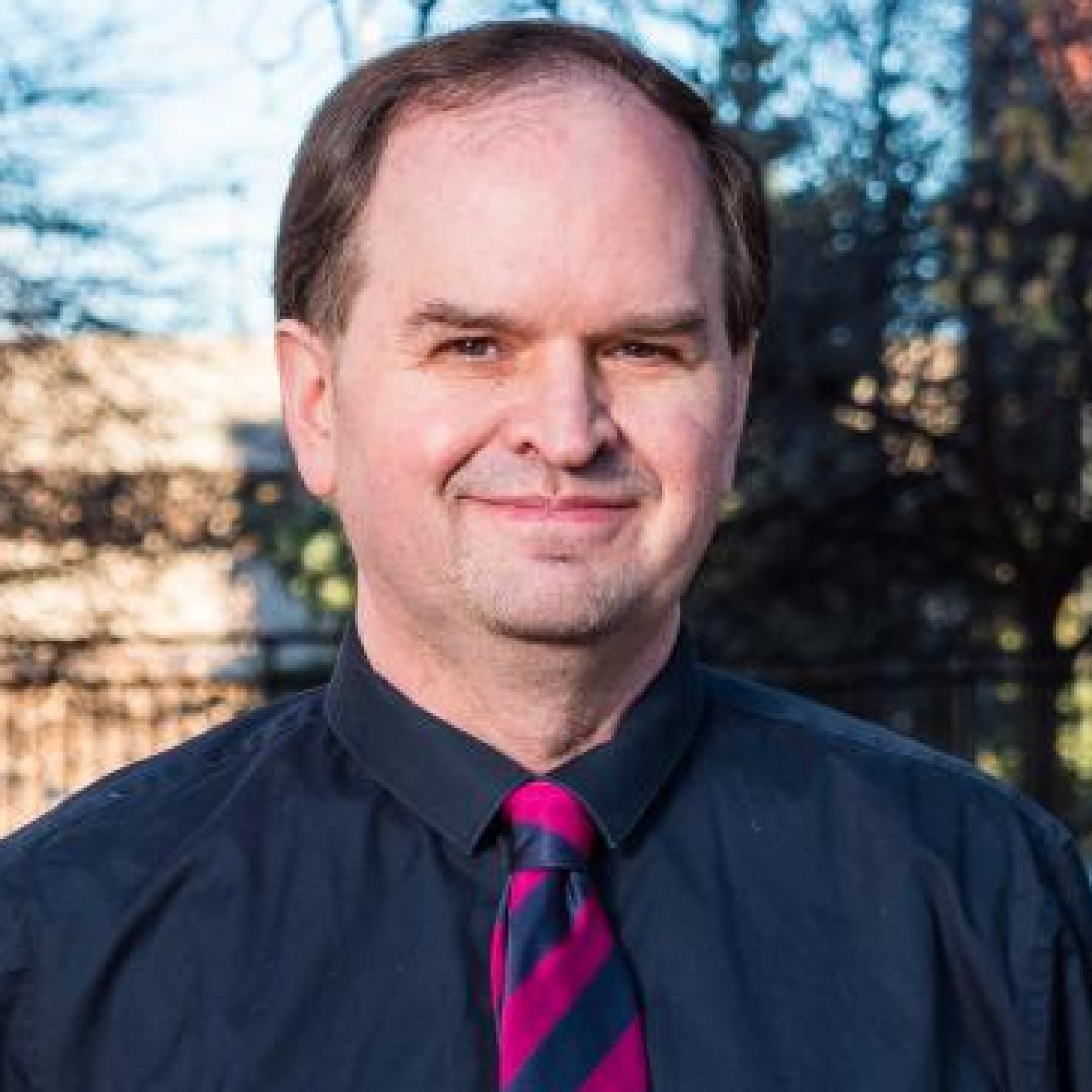Faculty profile: Department Chair Chris Myers shares his research journey

Name: Chris Myers
Tell us a little bit about your educational and professional background.
I received BS degrees from Caltech in 1991 in Electrical Engineering and Chinese History. As an undergraduate, I did research with a Chinese history professor, in which I analyzed population data from rural Liaoning, China. This work was published in a couple chapters of a book, and my first conference presentation was at a history conference.
In1991, I moved to Stanford for graduate school. I received an MS in EE in 1993 and a PhD in EE in 1995. My PhD research was to develop design methods and tools for timed asynchronous circuits. In the summer of 1995, I worked at Intel in Haifa, Israel, to develop a part of the X86 microprocessor using asynchronous design techniques.
In 1995, I joined the University of Utah as an assistant professor. At Utah, I continued my research in asynchronous circuits, and I branched into formal verification. I also moved into applications such as analog/mixed-signal circuits and synthetic biology. Most recently, my research is primarily in the area of design methods for synthetic biology.
In 2020, after 25 years at the University of Utah, I moved to CU Boulder to assume the role as chair of the ECEE department. In addition to my work as chair, I continue to do research with my graduate and undergraduate research students on synthetic biology. We are working now to open a wet lab, so we do not just design genetic circuits, but also build and test them too.
What courses do you teach?
Historically, I’ve taught a number of computer engineering courses, such as digital logic design and embedded systems, as well as graduate courses in asynchronous circuit design and formal verification. However, now as chair, I have time to only teach one class a year, and I’m teaching my Engineering Genetic Circuits course each fall. This course teaches students how to use software tools to design, model, build, and test genetic circuits. This fall though, I will be taking a break from teaching this course, since I’m creating content to distribute this course on Coursera as part of our online MSEE program.
What’s your favorite part about teaching these classes?
My favorite part about teaching has always been working with students one-on-one. Whether this means answering questions during office hours or working with my student researchers directly, this has always been my favorite part of my job.
What are some of the specific skills you teach that are important in industry?
Synthetic biology has led to a number of new startup companies. These companies need methods that are high-throughput and automated to be efficient and effective. This will require software tools and data standards, which are emphasized in my course.
What is your research area?
As I mentioned above, my research area is synthetic biology. In particular, my research students are developing new methods for designing and modeling genetic circuits, repositories for sharing data about genetic designs, and standards and other methods to improve data sharing and reproducibility of research results in this field. We are also hoping soon to add the experimental construction and testing of genetic devices in our new wet lab.
What has been your favorite research project?
That is not the easiest question for me to answer, as there are several. However, if I can only choose one, I expect it would be SynBioHub. SynBioHub is a repository for sharing genetic part information. Work on this project started while I was on sabbatical at Newcastle University in 2016. Initially, it was developed by a graduate student that I worked with there, but later I wanted new features faster than he was providing them. Therefore, I taught myself how to write Javascript code, and I started doing software development on this project myself. Since that time, I’ve had several additional students and follow on projects to continue SynBioHub’s development. We are working on a complete redesign right now funded by NIST. Sadly, as department chair, one of the activities I’ve had to give up is writing code regularly. I still dabble a bit in the coding side during our weekly hackathon meeting, but it is really not much. I expect when I step down, I hope to get back into that.
What impact do you hope your students have in this industry or world?
This is a great question. As one gets further in your career, you think about your overall impact. While it might be tempting to point to individual research results or papers, the real impact of an academic is the students you educate. I’m exceptionally proud of the students I’ve worked with over the years, and their many accomplishments. It is great when they move from “oh you were Chris Myers’ student” to “oh s/he worked for you!” My past students are having tremendous impact in a broad set of areas from their own faculty positions to becoming leaders in industry. This is truly the thing that makes me most proud.

